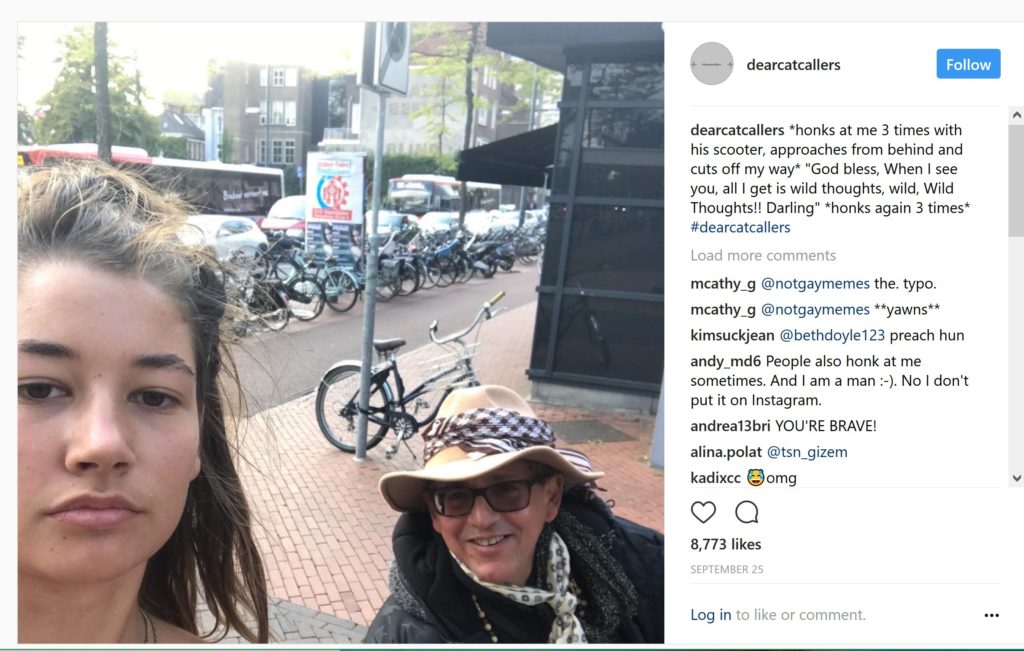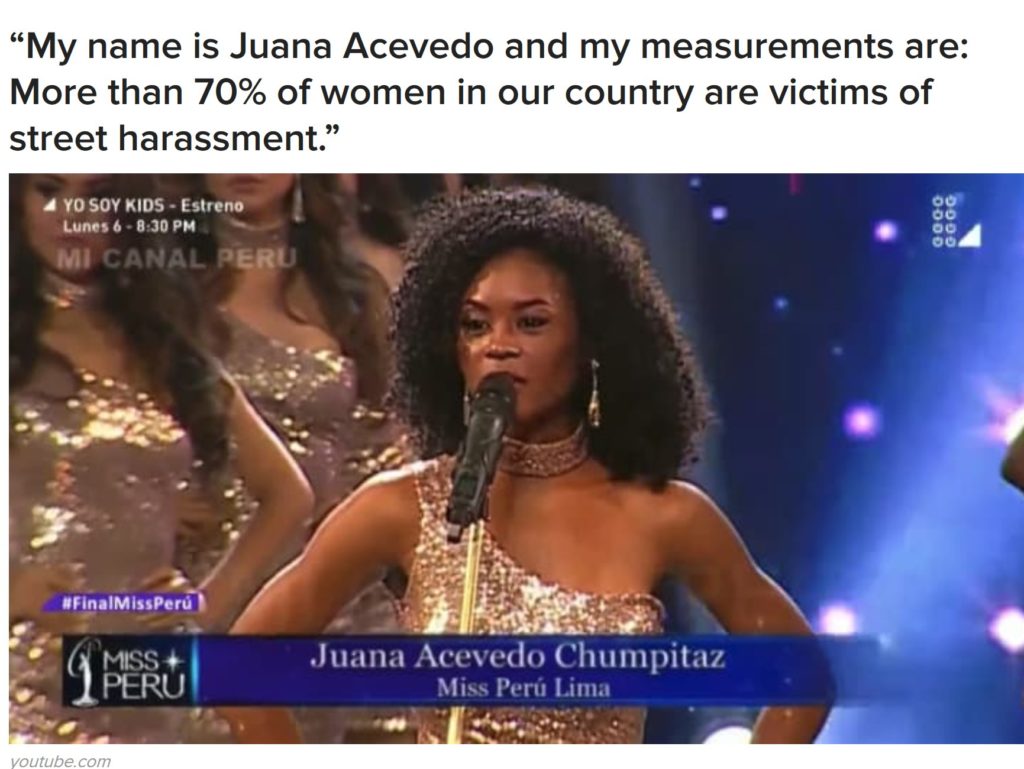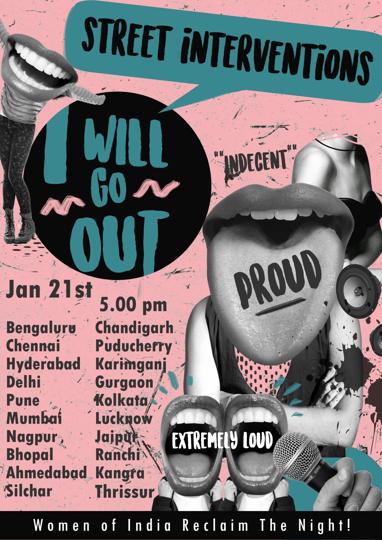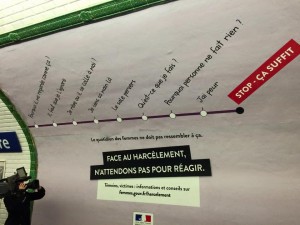Here are some of the relevant stories, resources and research that’s come forward across September, October and November!
Global News:
BBC’s global 100 Women campaign included harassment on public transit.
Argentina’s Lower House approved a bill that will criminalize street harassment nationally and set-up a free hotline.
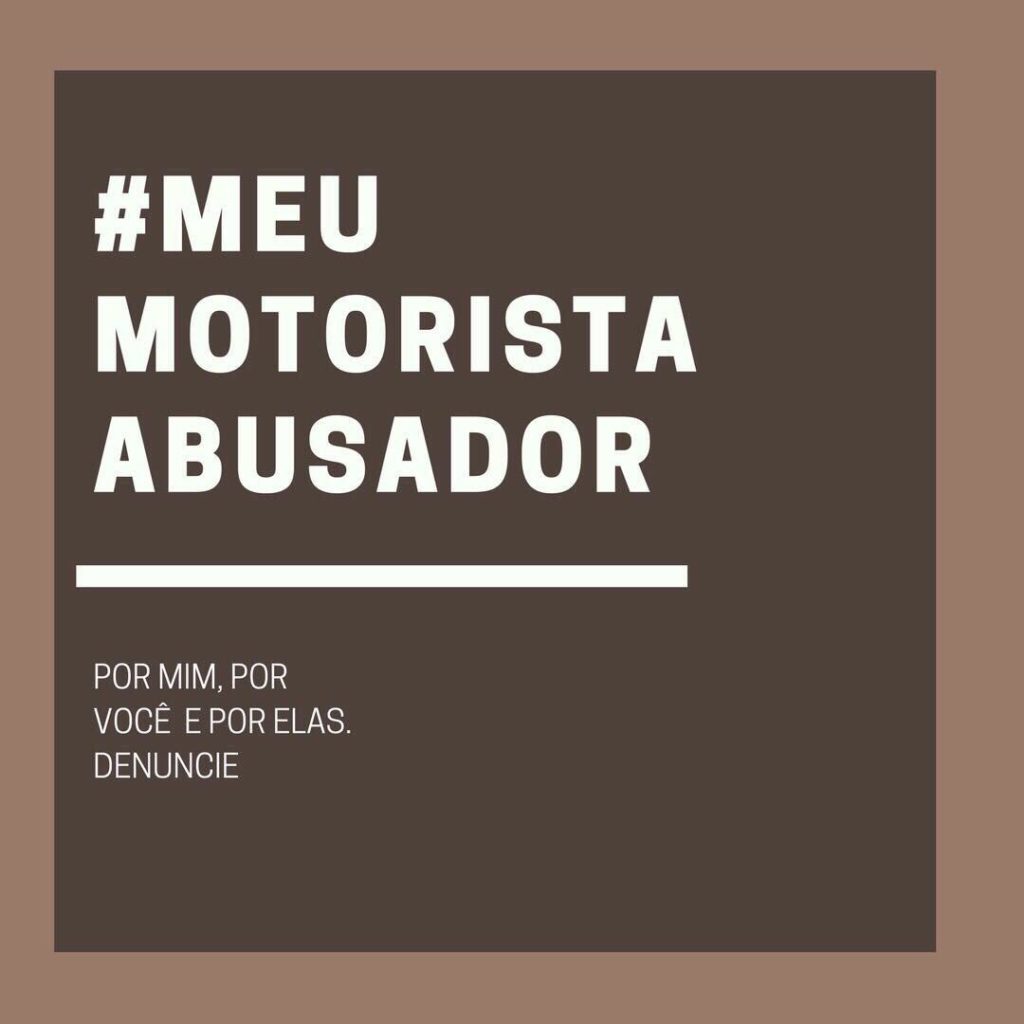 Rapper Drake called out a sexual assaulter in the audience of his show in Australia.
Rapper Drake called out a sexual assaulter in the audience of his show in Australia.
A new mobile app is launching in Belgium to help survivors and witnesses of sexual harassment.
Women in Brazil shared their stories of harassment and abuse by taxi and rides-sharing drivers.
The city of London in Ontario (Canada) is planning efforts to prevent street harassment.
Street artists in Colombia challenge sexism, street harassment with spray paint.
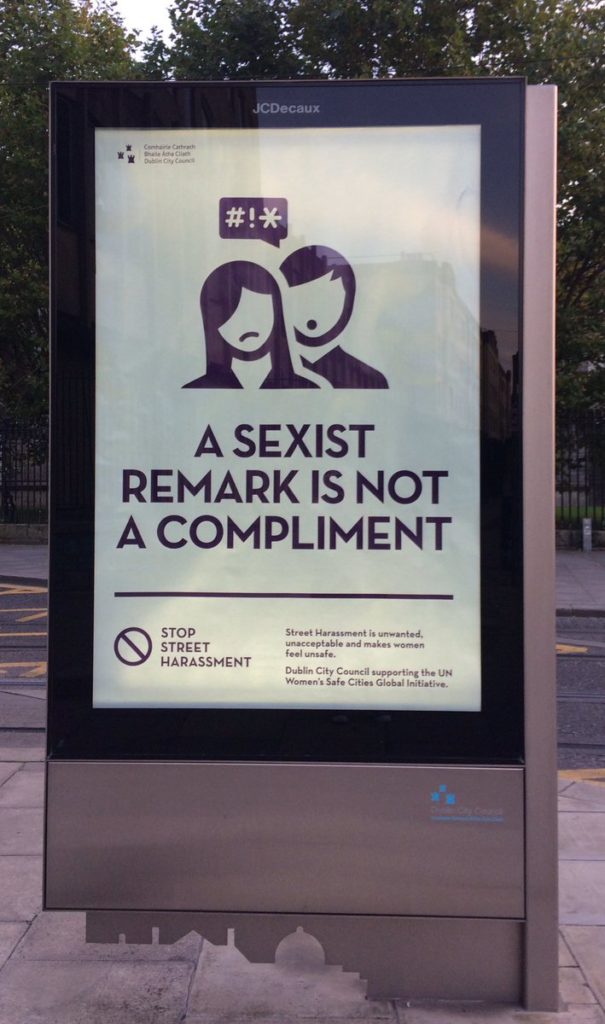 The new film “The People’s Girls” about street harassment in Egypt is now available.
The new film “The People’s Girls” about street harassment in Egypt is now available.
Women in France rallied against sexual violence while a national law against street harassment inched closer to passage.
An anti-harassment hotline in France quickly had to shut down due to trolls.
Activists in Guyana discussed how to address street harassment in their country.
Safecity in India released a new mobile app.
New posters by the Dublin City Council (Ireland) say, “A sexist remark is not a compliment.”
There’s a new sexual harassment hotline for transit riders in Kathmandu (Nepal).
A college student in the Netherlands took selfies with many of her street harassers across one month.
Staying safe in Pakistan (and elsewhere) may be easier if you have money.
Beauty pageant contestants in Peru gave PSAs about sexual violence, including street harassment.
Two harasser police officers were the first ones tried under Quezon City’s anti-harassment ordinance (Philippines).
An anti-harassment ordinance was proposed in Baguio City (Philippines).
A woman in Singapore wrote about street harassment and the right to public spaces.
Bars and clubs in Switzerland are doing more to address sexual abuse.
A woman in the UK made a map of street harassment hotspots.
The “Unmute” badge fosters bystander action on public transit in the UK.
The category of “gender hate crime” is now recognized in Bristol (UK).
Upskirt photos and videos may become a crime in UK.
Womanability released a new video on women’s safety in public in Uruguay.
The Mary Sue in the USA invited women to give persistent harassers the number of their rejection hotline
Some migrants from Venezuela face harassment in Peru.
New Research:
The Global Mobility Report (by World Bank-led partner SuM4All) shows that “harassment and physical abuse are preventing women around the world from being able to use public transportation safely.”
43% of women in Germany have faced some form of sexual abuse, with most occurring in public spaces.
In the UK, a poll showed that younger women face higher rates of harassment and are more likely to see wolf-whistling as unacceptable compared with older women.
Almost 80% of women and 26% of men ages 18 to 24 have been sexually harassed during “a night out” in the UK.
In the UK, 34% of teenage girls worry about being followed by a stranger and many girls cited experiences of street harassment.
A new survey shows 1 in 3 men don’t think catcalling is harassment (USA)
Powerful or Notable Pieces:
“Where do Harvey Weinsteins come from?”
“My daughter got her first catcall [at age 11, from an adult man], and I didn’t know what to tell her.”
“On being a woman alone in the woods.”
“Paying to stay safe: why women don’t walk as much as men.”
“Black woman viciously attacked after rejecting advances of cat callers.”
“Jogger stabs man with knife after he groped her.”
“Flagstaff police looking for man accused of grabbing teen girls near schools.”
“Why it’s never okay for men to ask women to smile.”
“I recorded every time I was catcalled this summer: Here’s what I learned.”
